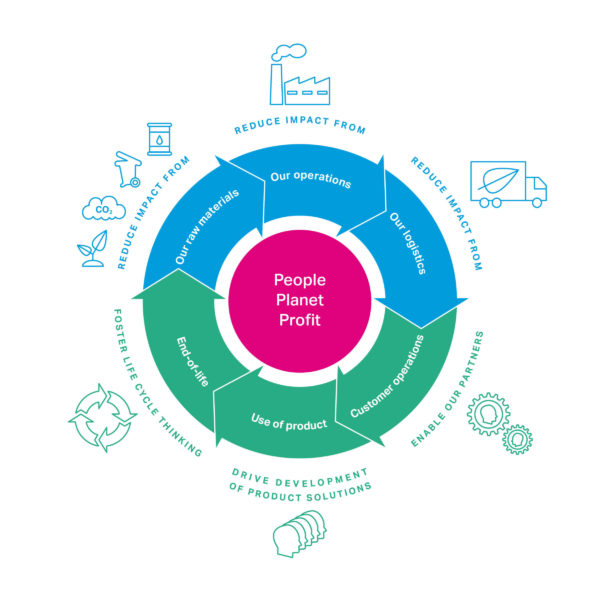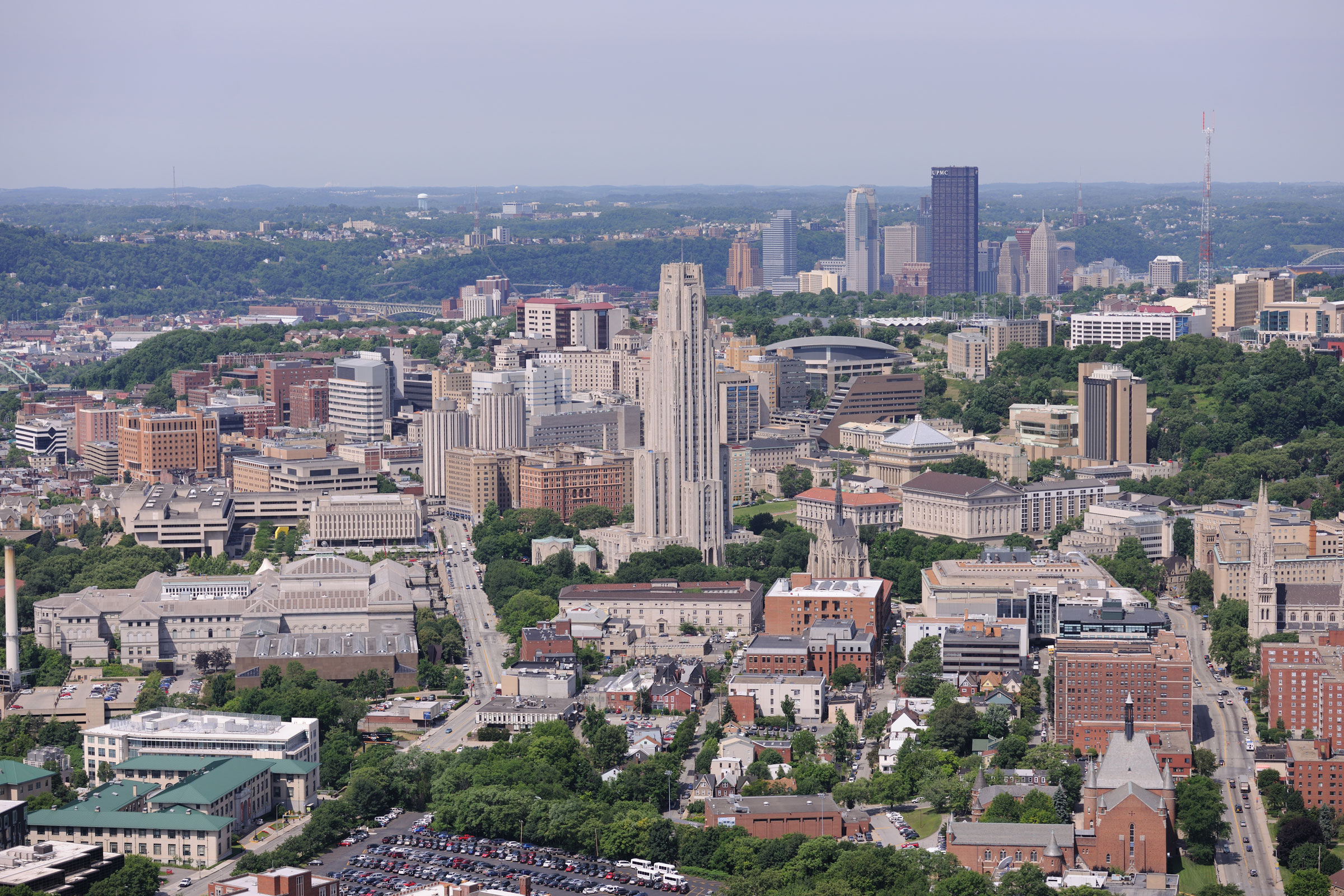Story at a glance:
- The Covestro Circular Economy Program focuses on circular economy design solutions for global waste.
- Students will begin the primarily PhD-focused program in the fall of 2022 at the Mascaro Center for Sustainable Innovation.
- Covestro and The University of Pittsburgh hope the announcement will bring interest from more potential partners.
Each American generates nearly five pounds of waste per day, according to the EPA. Eleven million tons of plastic end up in the ocean each year, according to the Pew Research Center. We could share a whole host of disappointing statistics, but instead we’ll focus on the inspiring work that is happening to reverse these shocking numbers.
New and exciting work is underway in Pittsburgh. The Covestro Circular Economy Program is the first US graduate program on circular economy design solutions for global waste. The University of Pittsburgh’s Mascaro Center for Sustainable Innovation and Swanson School of Engineering will house the new Covestro Circular Economy Program. The program is designed to create opportunities for the research, education, and innovative advancement of circular economy principles.
“We’re super excited to partner with Covestro to really think about innovative educational programming and research related to design for the circular economy,” says Melissa Bilec, PhD co-director at the Mascaro Center for Sustainable Innovation.
In spring 2020 Covestro made public its commitment to becoming fully circular, says Richard Skorpenske, head of sustainability and public affairs at Covestro. The company is looking at everything from emissions in manufacturing and raw materials to advanced recycling technologies.
“We knew from the beginning that we could not address these issues alone,” Skorpenske says. “That’s why one of the four pillars of our initiative around circularity is collaboration. This collaboration with the University of Pittsburgh is a marquee example of that.”
The Program

Image courtesy of Covestro
Bilec says the program is primarily a PhD program currently; they’re seeking students who are passionate about sustainability, climate change, and the circular economy as well as interested in making change from a design perspective.
“There’s coursework required with a PhD, but really where the innovation will occur is when the students work closely with their advisors,” Bilec says. “We’re thinking about what ideas students will be able to bring to the table as well.”
Students will begin in the fall of 2022. The program builds on a sustainable engineering program developed more than a decade ago, Bilec says, at a time when sustainability was less widely discussed across industries. While that program sent students out into the field to work internationally, this program has students problem-solve and experience sustainability in action close to home. “It’s really magical when you have students working together to solve a problem,” Bilec says. “That cohort model where you’re with friends and you’re working on a problem, we know that works. So that’s one thing we’re building into this program.”
As part of their studies students will complete professional internships. “We need to provide students with different opportunities so they understand the different pathways, so having a partner like Covestro and others, to really have that internship, is crucial,” Bilec says. She says hands-on opportunities like these are rare—and so beneficial for students and companies alike.
The Future

Vector illustration of an eco-city skyline with buildings, solar panels, wind turbines, and high-speed trains on light blue sky. Concept of eco-living in flat style. Image courtesy of Covestro
The program aims to train engineers and other professionals to look at the world through the lens of circularity and sustainability even more broadly, Skorpenske says, and that’s exciting. “As the program evolves and students become available, I’m sure there will be a wide variety of placements for them in a number of companies. Covestro will certainly be looking at where those opportunities are for us.”
Students may also go on to work in government, nonprofits, or at other companies, too. “There are many different places where, as we make this transition to circularity and consider climate impacts, that kind of thinking is going to be needed,” Skorpenske says.
As for the program, both Bilec and Skorpenske say this is only the beginning. “We’ve had internal discussions with the university and Covestro seeing this potentially as a model that could be scalable into other geographies,” Skorpenske says. “We look for any and every opportunity to scale this within the US and around the world … We don’t think we have a corner on it here, and we’re looking for greater participation and collaboration.”

